So we came in to somewhat unfortunate news today, that Canada Post has officially locked out their workers and brought mail to a grinding halt in Canada. 'How does this affect me?' I hear you say. Well thankfully none of the other services we offer have been affected, and we're currently evaluating our options with […]
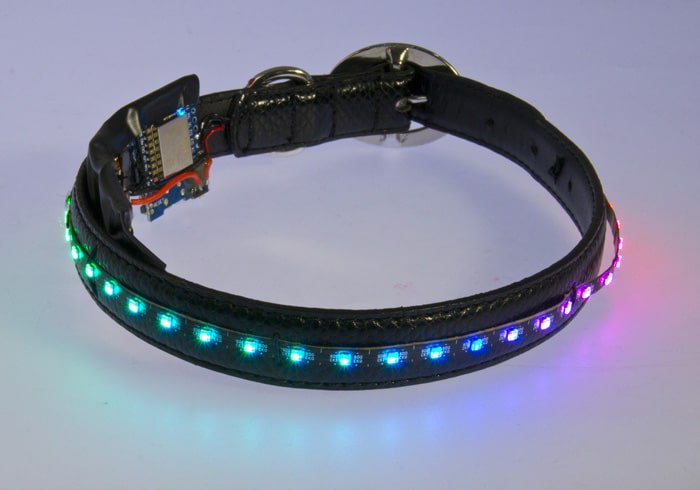
APA102-2020 MicroNova Custom LED Choker
I created this choker as a project to demonstrate the new MicroNova APA102-2020 LED strips.
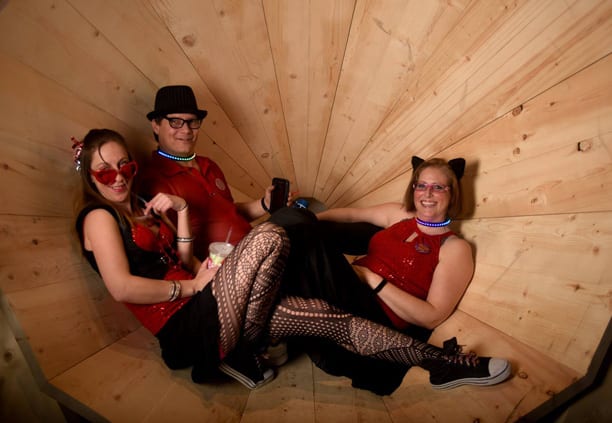
Photo by Yeti, edited by Batgirl
These addressable LEDs are extremely small, less than 1/4 the size of a standard 5050 LED.
This project was built using engineering sample standard MicroNova 99 LED / meter strips . The MicroNova strips we are selling have 198/meter - twice the density!
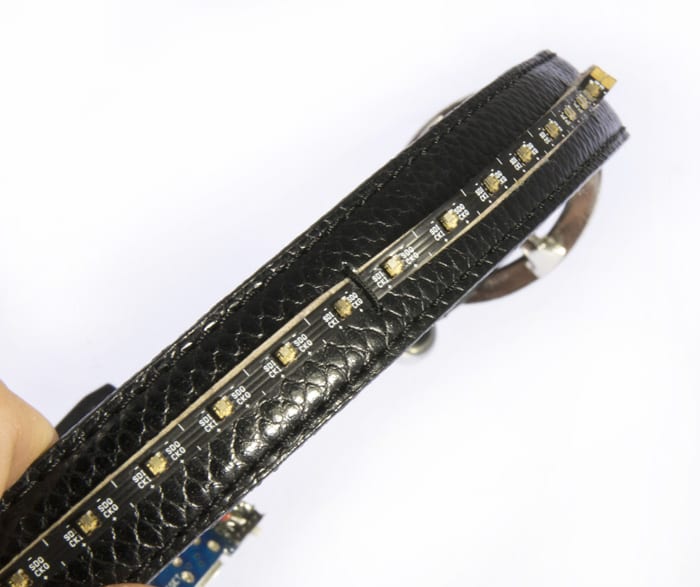
Reason for a Choker necklace:
Hats have been done, shoes have been done, pendants have been done. This is something new for a Valentine’s dance costume, so I decided to go with a choker design. I also wanted something that was interactive, something that would add another layer of WOW to just lighting.
The Build:
I used a Wemos D1 Mini development board along with a boost-converting battery shield for the Wemos D1.

The battery shield was a particularly good choice here because the MicroNova LEDs should be supplied a solid 5VDC. This board boosts the battery voltage to 5V, and then the Wemos D1 Mini bucks it down to 3V3 for it's own operation.
A mini SPDT Slide switch toggles the power from the battery shield to the D1. This allows charging the battery using the battery shield USB connector while not powering the D1.
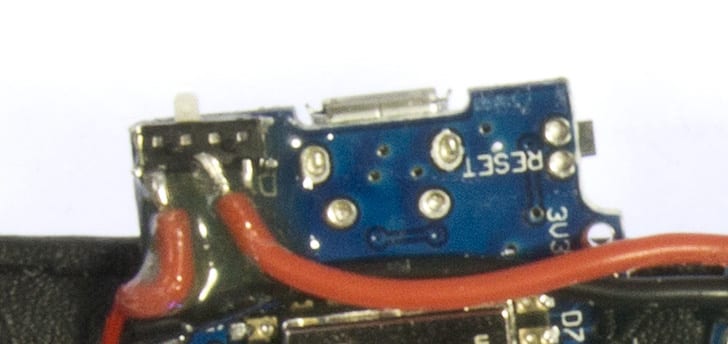
Epoxy locks the switch and wires in place.
The battery used is a conveniently handy older 450mAh Lithium Polymer. Depending on the lighting mode, this battery can power the necklace for a couple of hours.
I used elastic thread to attach the LED strip and components to the necklace. A heavy duty needle was all that was needed to punch through the (imitation) leather belt. Because the thread was elastic and tied under tension, it held the MicroNova strip well in place.
Operation:

When the choker powers up, it creates a WiFi Access Point called "HeartBurnChoker1".
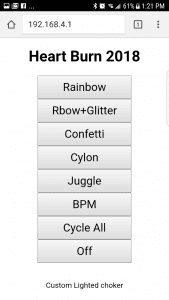
Once I connected to this WiFi, I opened a browser and went to 192.168.4.1. The control interface is simple, but effective. The D1 Mini has more than ample power and speed to effectively drive these LEDs. The MicroNova features separate clock & data lines, so even relatively slow I/O (like Raspberry Pi) can still make it work.
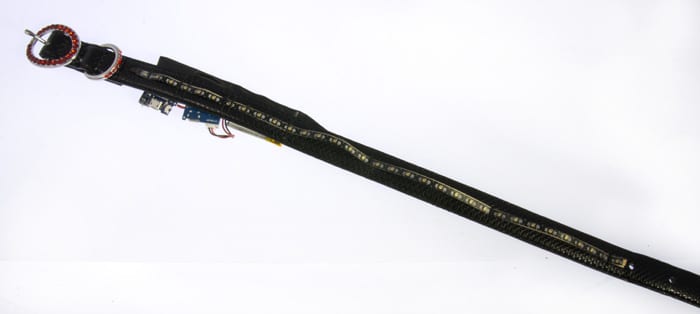
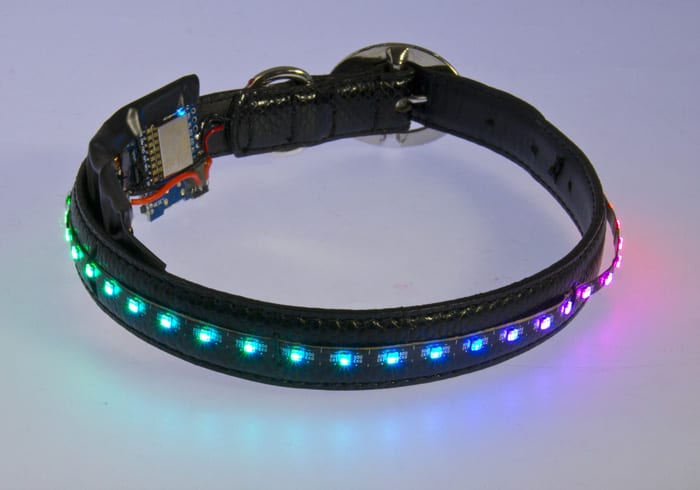
Video of the Collar in Action
MORE POSTS
Harold Ilano built this SW2.2 / VBug inspired 5 motor walker named "Tank", and just recently announced it on the BEAM mailing list. It's a very effective and quick device - nicely done, and well worth a look-see. It still impresses me what we can do without a microcontroller...
The Googles tell us that 'synapse' is defined as "a junction between two nerve cells, consisting of a minute gap across which impulses pass by diffusion of a neurotransmitter." This, however, is one of the rare instances where The Googles are wrong, because what Synapse actually is (according to Jeremie, our tech guy) are RF engines […]
Space is Limited! RSVP as soon as possible! -- Solarbotics will be hosting another workshop to get you prepared for this year's annual Western Canadian Robot Games. The main attraction will be our almost-in-production ScoutWalker III Robot. The ScoutWalker III is an agile two-motor walking BEAM robot platform designed to take advantage of microprocessor-based brainboards, […]
Solarbotics, Ltd. is not responsible for misprints or errors on product prices or information. For more information, please see our Terms and Conditions.
Warning: This product contains chemicals known to the State of California to cause cancer and birth defects or other reproductive harm.
Please visit www.P65Warnings.ca.gov for more information. This item was manufactured prior to August 31, 2018.

